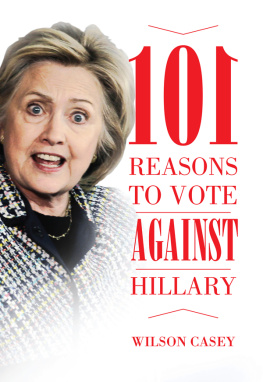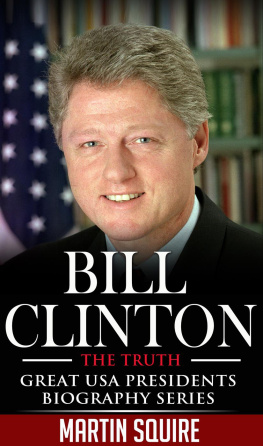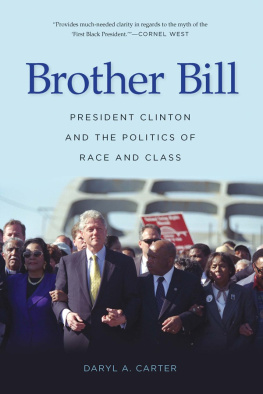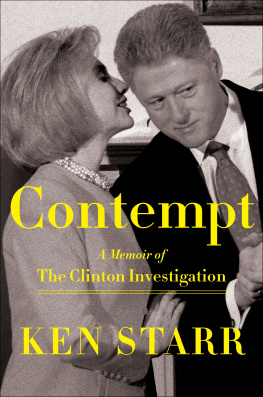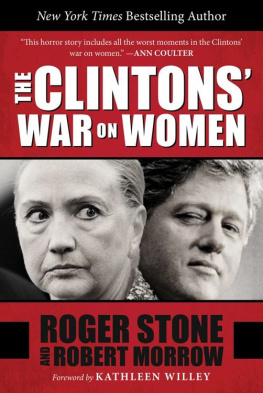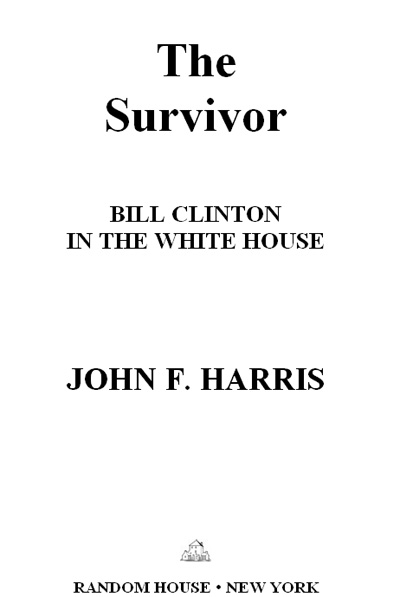John F. Harris - The Survivor: Bill Clinton in the White House
Here you can read online John F. Harris - The Survivor: Bill Clinton in the White House full text of the book (entire story) in english for free. Download pdf and epub, get meaning, cover and reviews about this ebook. year: 2006, publisher: Random House Trade Paperbacks, genre: Politics. Description of the work, (preface) as well as reviews are available. Best literature library LitArk.com created for fans of good reading and offers a wide selection of genres:
Romance novel
Science fiction
Adventure
Detective
Science
History
Home and family
Prose
Art
Politics
Computer
Non-fiction
Religion
Business
Children
Humor
Choose a favorite category and find really read worthwhile books. Enjoy immersion in the world of imagination, feel the emotions of the characters or learn something new for yourself, make an fascinating discovery.

- Book:The Survivor: Bill Clinton in the White House
- Author:
- Publisher:Random House Trade Paperbacks
- Genre:
- Year:2006
- Rating:3 / 5
- Favourites:Add to favourites
- Your mark:
The Survivor: Bill Clinton in the White House: summary, description and annotation
We offer to read an annotation, description, summary or preface (depends on what the author of the book "The Survivor: Bill Clinton in the White House" wrote himself). If you haven't found the necessary information about the book — write in the comments, we will try to find it.
Bill Clinton is the most arresting leader of his generation. He transformed American politics, and his eight years as president spawned arguments that continue to resonate. For all that has been written about this singular personalityincluding Clintons own massive autobiographythere has been no comprehensive, nonpartisan overview of the Clinton presidency.
Few writers are as qualified and equipped to tackle this vast subject as the award-winning veteran Washington Post correspondent John F. Harris, who covered Clinton for six of his eight years in officeas long as any reporter for a major newspaper. In The Survivor, Harris frames the historical debate about President William Jefferson Clinton, by revealing the inner workings of the Clinton White House and providing the first objective analysis of Clintons leadership and its consequences.
Harris shows Clinton entering the Oval Office in 1993 primed to make history. But with the Cold War recently concluded and the country coming off a nearly uninterrupted generation of Republican presidents, the new presidents entry into this maelstrom of events was tumultuous. His troubles were exacerbated by the habits, personal contacts, and the management style, he had developed in his years as governor of Arkansas. Clintons enthusiasm and temper were legendary, and he and Hillary Rodham Clintonwhose ambitions and ordeals also fill these pagesarrived filled with mistrust about many of the characters who greeted them in the permanent Washington that often holds the reins in the nations capital.
Showing surprising doggedness and a deep-set desire to govern from the middle, Clinton repeatedly rose to the challenges; eventually winning over (or running over) political adversaries on both sides of the aislesometimes facing as much skepticism from fellow Democrats as from his Republican foes. But as Harris shows in his accounts of political debacles such as the attempted overhaul of health care, Clintons frustrations in the war against terrorism, and the numerous personal controversies that time and again threatened to consume his presidency, Bill Clinton could never manage to outrun his tendency to favor conciliation over clarity, or his own destructive appetites.
The Survivor is the best kind of history, a book filled with major revelationsthe tense dynamic of the Clinton inner circle and Clintons professional symbiosis with Al Gore to the imprint of Clintons immense personality on domestic and foreign affairsas well as the minor details that leaven all great political narratives. This long-awaited synthesis of the dominant themes, events, and personalities of the Clinton years will stand as the authoritative and lasting work on the Clinton Presidency.
From the Hardcover edition.
John F. Harris: author's other books
Who wrote The Survivor: Bill Clinton in the White House? Find out the surname, the name of the author of the book and a list of all author's works by series.


